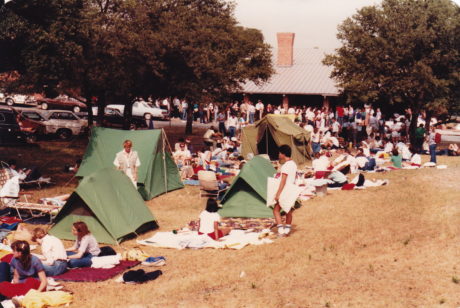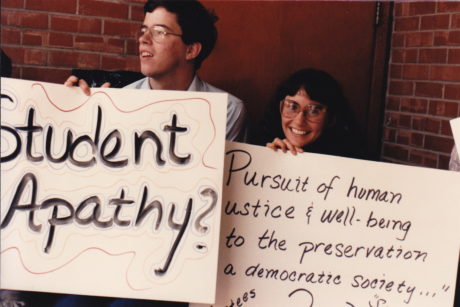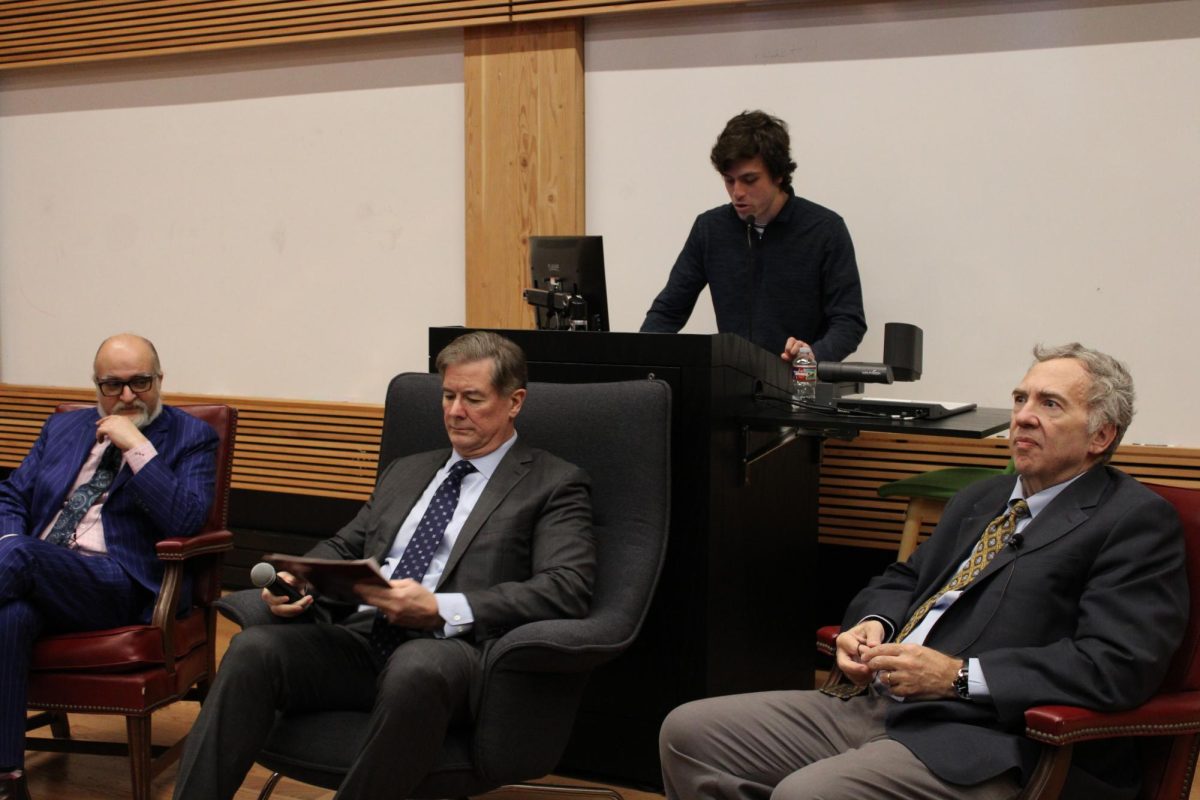This past weekend, I spent my 30th class reunion at Trinity sneaking off to Austin to see Jay-Z with my son, a Trinity first-year, reminiscing about the class of 1987 and reading the responses in the Trinitonian to Daniel Conrad’s column about how conservatives on campus are winning.
My class came into Trinity at a unique time. In the fall of 1983, our first semester on campus, a group of students formed what they then called the Trinity Gay Support Group. The group submitted their constitution to the university and, having met all the requirements for a university-sanctioned group, they were approved. However, upon returning to campus after the holidays, the Trinity Gay Support Group learned that the university, at the direction of then-president Calgaard and the board of trustees, had rescinded this approval. This led to several years of battles over the issue, including sit-ins at the president’s office, attempts to block Trustee’s cars when they were leaving campus, marches to President Calgaard’s home and the creation of “Calgaardville” “” a student shanty town on campus.

We were a feisty bunch, we believed we were right “” we were “” and we pushed hard for our beliefs. And while the protests started with the university’s rejection of the Gay Support Group, they carried over to increases in tuition and to the acquisition of a Henry Moore statue, which we turned into the first hole of the newly created frisbee golf course.
At our class reunion, we remembered these heady times with pride. We looked at slides of our protests and remembered the positions that we took. Looking around the room, you probably wouldn’t have guessed that those students on the screen were these same people sipping pinot noir in the Skyline Room. Now, we are older, grayer, larger and more comfortable. We’ve achieved success and that’s a good thing in so many ways. But it left me wishing a bit for those days of 30 plus years ago and that spirit. I couldn’t help but wonder if we still have it in us.

I also spent time reading Daniel Conrad’s editorial in the Trinitonian, describing the political climate on campus, detailing the success of the more politically conservative groups on campus and the relative failure of more liberal groups. This led to several columns, including a debate about the relevance of the Trinitonian itself.
Daniel concluded his piece by addressing more progressive members of the campus community this way: “What we’re saying is, your opposition keeps on winning. So prove that your opinions aren’t a matter of mere fashion, show them you’re not willfully ignorant, and awaken from that dogmatic liberal slumber.”
Now, as an alumnus, I have no real way of knowing if Daniel’s take on the temperature of campus politics is correct. But I do question his identification of the opposition.
During my time at Trinity we were fortunate that the opposition was very well defined. It was the administration. The particular stances of the national political parties didn’t play into our demonstrations on campus. Certainly, the Reagan-Mondale election was a big deal, but it was almost a separate discussion from the shared revolt against the actions of the president and the board of trustees.
Today seems very different. We are gripped by a remarkable political divisiveness in this country, so much so that we cannot see the common enemy. It is my belief that many of the ingrained forces of leadership in the country have put their best interests ahead of the interests of the rest of us, and that we must work together to remove these chains from all of us.
There was an old comic strip, even predating me, called “Pogo.” The main character’s most famous line was, “We have met the enemy, and he is us.” We cannot let this become true by focusing on the disagreements between progressives and conservatives.
All of this was in my mind, when I saw Jay-Z on Friday night. He rapped “The Story of O.J.,” one of the best songs on 4:44. Obviously he was inspired by the words of Malcolm X, who said, “If someone came to the house Negro and said, “˜Let’s go, let’s separate,’ naturally that Uncle Tom would say, “˜Go where? What could I do without boss? Where would I live? How would I dress? Who would look out for me?’ That’s the house Negro. But if you went to the field Negro and said, “˜Let’s go, let’s separate,’ he wouldn’t even ask you where or how. He’d say, “˜Yes, let’s go.’ And that one ended right there.”
My class, the class of 1987, was once that group that wouldn’t even ask you where or how, we’d just say “Let’s go.” Perhaps now we’ve become too much of that group that wonders where we would live and how would we dress.
If true, that’s a shame. But we look forward ahead to you, the current group of Trinity students, to be that other group that pushes us forward and says “Let’s go, let’s separate.” Trinity needs those voices and that spirit, and we need it as a nation.
Please don’t get caught up in fighting each other, when there is a greater foe out there. We, most especially the class of 1987, are counting on you.






